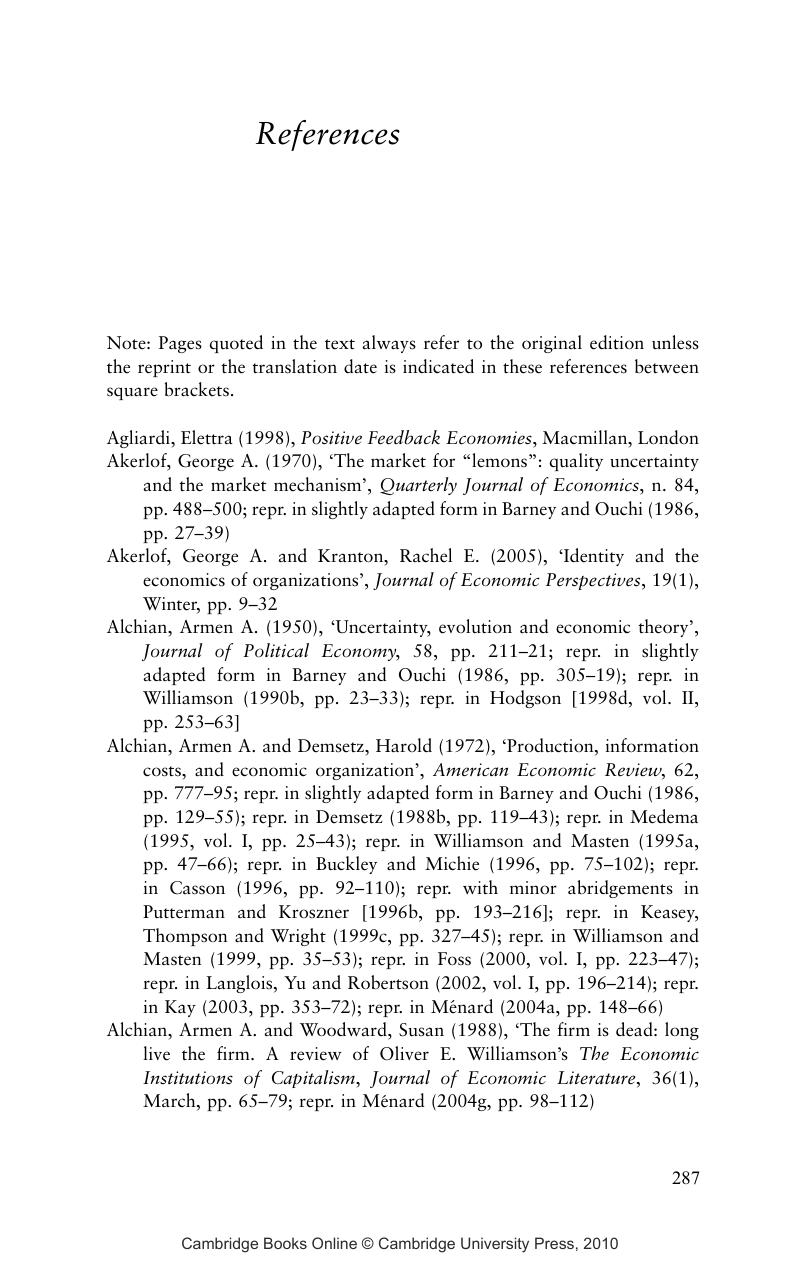Book contents
- Frontmatter
- Contents
- List of figures
- List of tables
- Acknowledgements
- Introduction and summary
- 1 Basic conditions
- 2 Decision-making
- 3 Organisational coordination
- 4 Wrestling with uncertainty
- 5 Uncertainty-decreasing strategies within firms
- 6 Conclusion: growth of the firm as the interplay between the three aspects of organisational coordination
- Glossary
- References
- Author index
- Subject index
- References
References
Published online by Cambridge University Press: 15 December 2009
- Frontmatter
- Contents
- List of figures
- List of tables
- Acknowledgements
- Introduction and summary
- 1 Basic conditions
- 2 Decision-making
- 3 Organisational coordination
- 4 Wrestling with uncertainty
- 5 Uncertainty-decreasing strategies within firms
- 6 Conclusion: growth of the firm as the interplay between the three aspects of organisational coordination
- Glossary
- References
- Author index
- Subject index
- References
Summary

Information
- Type
- Chapter
- Information
- Knowledge, Scale and Transactions in the Theory of the Firm , pp. 287 - 340Publisher: Cambridge University PressPrint publication year: 2006
References
Accessibility standard: Unknown
Why this information is here
This section outlines the accessibility features of this content - including support for screen readers, full keyboard navigation and high-contrast display options. This may not be relevant for you.Accessibility Information
- 1
- Cited by
